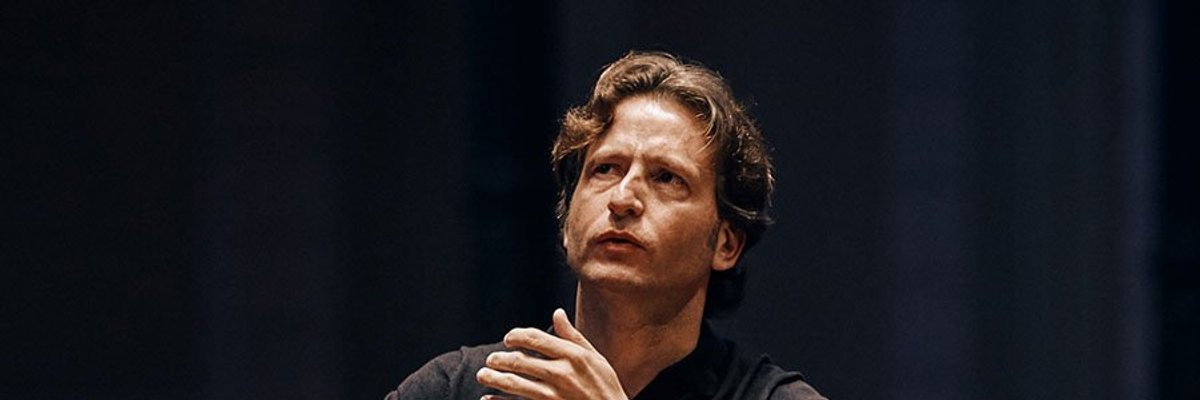Sacha Baron Cohen, the spectacularly uninhibited gonzo master of put-ons, has been called “the pure, untamed id of movie comedy” and “a genuine comic guerrilla charging right to the front lines of the war against prejudice and sanctimony.” The term “genius” has been applied liberally since Baron Cohen’s Borat (2006) skillfully skewered racism, anti-Semitism and America’s over-developed sense of national pride. Yet his second feature, Brüno, leaves me cold. As social satire, it is boorish and scattershot; as farce, it is obvious and erratic.
The purpose of comedy is to make us laugh, something Brüno does efficiently only in fits and starts. To be fair, exaggerated rumors of his brilliance aside, Baron Cohen remains a bold performer, fearlessly flaunting his character’s homosexuality in the face of potential danger – on a hunting expedition, for instance, with armed macho types instinctively hostile to his proclivities. Unfortunately, the sequence is labored in execution: Brüno makes “manly” small talk about female anatomy in an obviously phony ploy to fit in, just as Steve Carell’s character did to greater comic effect in The 40-Year-Old Virgin. His focus soon shifts to men, and his tedious innuendo inspires exasperated stares both on the screen and off. But you have to admire his chutzpah.
Once again, Baron Cohen fires at a range of deserving targets, and his aim is sometimes true. Brüno, the flamboyantly fey Austrian fashion reporter he introduced in a series of sketches on Britain’s Comedy Central, ridicules homophobes, shallow celebrities and fame-hungry parents who view their children as meal tickets. Some of it resonates: His plan to dress infants in Nazi regalia for a photo shoot hardly fazes one mother, who volunteers her son for liposuction if it will land him the gig. Equally entertaining, though far less revealing, is Brüno’s visit to a swingers’ party, where a sexually aggressive blonde attempts to beat the gay out of our suddenly overmatched hero.
Elsewhere, Baron Cohen’s pranks seem either tired or cynical. Mocking a fashion model who laments the perils of walking the runway? It’s been done, most memorably in Ben Stiller’s Zoolander. His visit to a counselor who converts gays to the hetero lifestyle wanders into territory already covered by Bill Maher in last year’s Religulous, which, like Brüno, was directed by longtime TV writer Larry Charles. And then there are the interviews.
Watch Brüno talk humanitarianism with Paula Abdul, as both sit on the backs of Mexican handymen! See Brüno attempt an awkward seduction of former presidential candidate Ron Paul! In Abdul’s case, the setup, which must have seemed clever in the planning, doesn’t pay off – she’s clearly uncomfortable, cutting the interview short in record time. The segment, intended to expose her as a typical Hollywood hypocrite, casts her instead as the unhappy victim of an ill-conceived hoax.
Paul’s appearance, on the other hand, elicits the desired response: He storms off, twice calling Brüno a “queer.” It’s an embarrassing moment for the libertarian Texas congressman, I suppose, unlikely to win him favor among gay voters. But does it reveal Paul as a virulent homophobe, or as an otherwise even-tempered guy who doesn’t like being played for a sap?
How much of Brüno is staged is anyone’s guess. As he did in Borat, Baron Cohen brings his culturally clueless rube to Los Angeles, where Brüno’s dreams of celebrity are predictably shattered before he wises up and tweaks his image. To become a star like his idols – among them, Tom Cruise, John Travolta and Kevin Spacey – he creates a more masculine persona, then abandons it in a moment of self-realization. His fans, expecting an evening of UFC-style brutality and treated instead to man-on-man porn, howl with disgust, and Baron Cohen’s point is driven home: Homophobia is alive and well in Fort Smith, Arkansas.
Does that make Brüno a pioneer in the fight against intolerance? Hardly. He’s a buffoon, divorced from reality in a way even Borat was not, and when his misadventures have a point, it’s usually an obvious one. Those awakened to the struggles of gays in America by Baron Cohen’s latest mockumentary might also be startled to learn that cigarettes are bad for you, and that fast food makes you fat.
For a movie clocking in at a lean 82 minutes – an interview with LaToya Jackson was cut in the wake of her brother’s death – Brüno has filler to spare. There’s a subplot involving a lovestruck personal assistant (Gustaf Hammarsten) that more or less kills time between calculated assaults, and a talent agent (passed off as the genuine article, though I have my doubts) who inexplicably arranges an NBC test screening for Brüno’s proposed talk show.
The show, which features gratuitously gyrating genitalia and a talking penis, is, like much of Brüno, designed to provoke uncomfortable laughter, and it does. The scenario is more noteworthy, though, for providing the movie’s most honest, unscripted moment. When Brüno approaches Harrison Ford for an interview, he’s abruptly told, in profane terms, to buzz off. It’s wish fulfillment – not just for Brüno’s unsuspecting victims, but also for much of the audience.
Brüno opens in theaters everywhere today. For showtimes, click here.




















